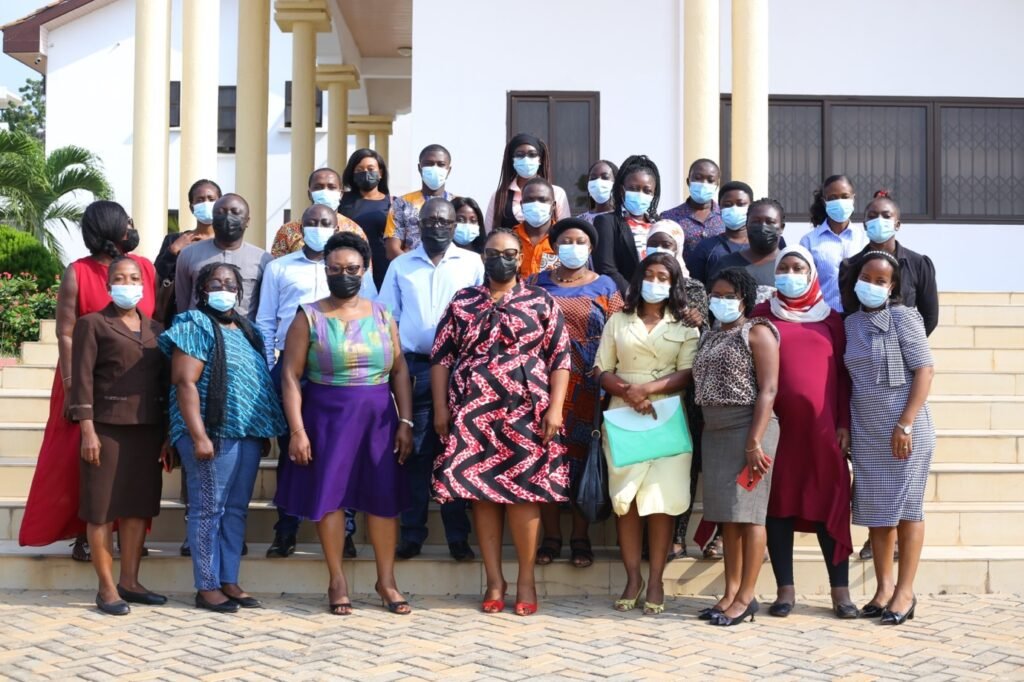
The Greater Accra Resilient and Integrated Development (GARID) Project has organized a capacity building workshop on Gender Based Violence, Sexual Exploitation and Abuse / Sexual Harassment (GBV) SEA / SH for service providers in the Greater Accra Region.
The workshop is part of the efforts by the GARID Project to map and train GBV service providers within the Project intervention areas and develop a GBV (SEA/SH) Prevention and Response Action Plan that will guide the implementation of the Project.
Speaking at the opening session of the workshop, the Social Safeguards Specialist for the GARID Project, Mr. Abdul-Rahim Abdulai, said the purpose of the workshop was to enhance the Service Providers’ knowledge on (GBV) SEA / SH issues and build their capacities to handle the occurrence and disclosures of such issues during the implementation of the Project.
He announced that the Project had mapped 286 service providers across the Greater Accra Region and will organize similar workshops for the other groups of service providers in the region. He entreated participants to take the lessons learnt from the training seriously and apply them when the Project starts its operations in their respective local assemblies.
Mr. Abdulai also called for strong collaboration between the Service Providers and the GARID Project stressing that, “it is only through effective collaboration that we can together help reduce the risks of (GBV) SEA / SH issues during the execution of the Project in the beneficiary communities”.
Ms. Naana Frimpong, a facilitator from the Ark Foundation, the consulting firm for the assignment, indicated that (GBV) SEA / SH is a global issue. She intimated that the likely influx of workers in the GARID Project beneficiary communities when the construction of major infrastructure interventions begins, may create a high-risk environment for the occurrence of such issues. Ms. Frimpong urged the Service Providers to be alert and deal with (GBV) SEA / SH issues effectively to avert any negative safeguards implication on the Project.
The Service Providers who were drawn from the Domestic Violence and Victim Support Unit (DOVVSU) of the Ghana Police Service, the Social Welfare Secretariat, Legal Aids, Health Facilities, and the Guidance and Counseling Unit of the Ghana Education Service were taken through a wide range of (GBV) SEA / SH topics including GBV risks on the GARID Project, the GARID system for (GBV) SEA / SH prevention and response, case management, and the services available for the (GBV) SEA / SH survivors.
Participants underscored the relevance of the training for their respective work. They commended the GARID Project for their foresight to train the Service Providers on (GBV) SEA / SH prior to the commencement of the major infrastructure interventions in the Project communities. Hajia Sekina Wottuomo Dakpo, the Guidance and Counselling Coordinator of the Ayawaso Central Municipal Education Directorate, noted, “…this training is of immense benefit to us as Service Providers. For me, the most important take away from the workshop is the context the training has provided for the roles we, the Service Providers, are expected to play on the GARID Project. I have a good understanding of the GARID Project and its major interventions, and in good position to handle any (GBV) SEA / SH issues that may occur in the course of the implementation of the Project”.
Chief Inspector Salome W. Zaato of Madina DOVVSU also expressed her satisfaction about the training. According to her, “… the topics treated at the workshop are apt and very relevant to the key (GBV) SEA / SH issues that may arise in the course of the implementation of the Project. I have learnt a lot about the GARID Project, the GBV Risks on the Project, the Project’s system for (GBV) SEA / SH prevention and response, among other important topics. These have equipped me with the relevant information I need to play my roles effectively as a Service Provider on the Project”.
The GBV service mapping and training of Service Providers and the GARID Project staff are part of the measures the Project is putting in place to reduce the risk of (GBV) SEA / SH issues that may arise during the implementation of the Project in the Greater Accra Region.
